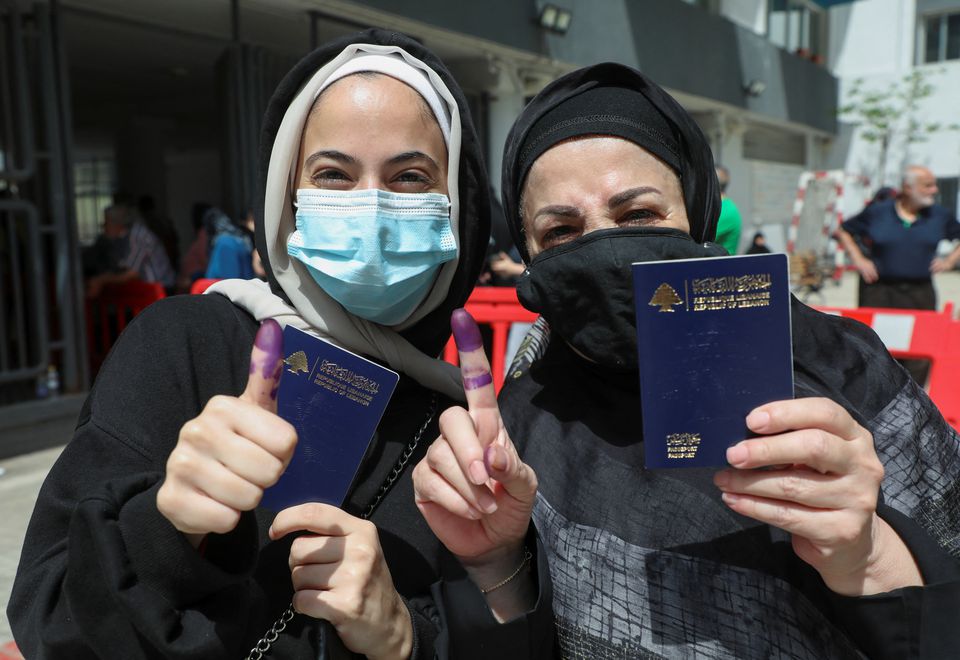
Lebanese voted in the country’s first parliamentary election since the country’s economic collapse on Sunday, with many saying they hoped to punish ruling lawmakers blamed for the catastrophe, even if the chances of meaningful change appear limited.
The election is seen as a litmus test for whether the heavily armed, Iran-backed Hezbollah and its allies can maintain their assembly majority in the face of increasing poverty and dissatisfaction with ruling parties.
Since the last election in 2018, Lebanon has experienced an economic crisis organised by the governing elite, as well as a major explosion at Beirut’s port in 2020.
While observers believe popular outrage could help reform-minded candidates gain some seats, analysts do not foresee a significant shift in the balance of power, since the sectarian political system favours established parties.
‘Lebanon deserves better,’ said Nabil Chaya, 57, who voted in Beirut with his father.
‘It’s not my right, but it’s my responsibility – and I believe it makes a difference. The people have become more aware. Is it too little, too late? Perhaps, but they believe that change is required.’
The crash has been Lebanon’s biggest destabilising catastrophe since the 1975-1990 civil war, sinking the currency by more than 90%, throwing three-quarters of the population into poverty, and freezing savers’ assets.
On Sunday, voting booths across the country experienced power outages as a result of the collapse.
Rana Gharib, a Shi’ite Hezbollah supporter in southern Lebanon, said she had lost money in the financial collapse but was still supporting for the organisation.
‘We vote for an ideology, not for money,’ said Gharib, a woman in her thirties voting in Yater, credited Hezbollah for driving Israeli soldiers out of southern Lebanon in 2000.
According to interior ministry estimates, turnout was 41 percent, omitting 60 of 1,752 polling sites, indicating lower participation than in 2018, when the percentage was around 50 percent.
According to the state-run news agency, fistfights and other confrontations halted polling in many districts, with security forces intervening to allow voting to resume. According to Interior Minister Bassam Mawlawi, events are still ‘at an acceptable level.’
Tensions were especially severe between Hezbollah and the Lebanese Forces, a Christian group linked with Saudi Arabia.
The LF is adamantly opposed to Hezbollah’s arsenal of weaponry and attempted to run Shi’ite candidates in Hezbollah-dominated areas, but most withdrew before Sunday.
According to the LF, Hezbollah supporters attacked their delegates at many polling booths in the southern district of Jezzine, injuring at least four people.
According to a Hezbollah official, the group has no presence in Jezzine, and the party later accused the LF for sparking violence in other regions.

Post Your Comments